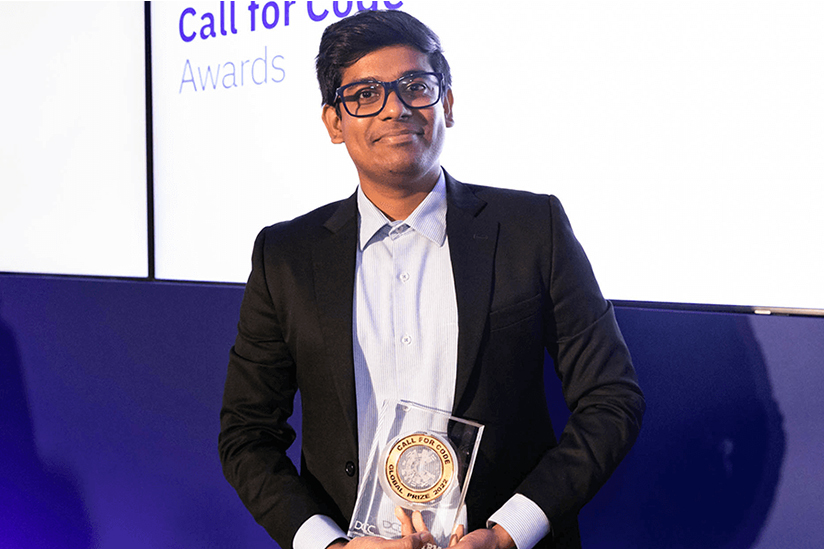Inspired by the plastic pollution problem in his home country, USC computer science student receives $25,000 prize in global IBM competition.
Walking through the busy streets of his hometown of Colombo, Sri Lanka, Thiloshon Nagarajah noticed the plastic waste choking the open drains that run through the city. Like many areas with underdeveloped sewage systems, in Colombo, wastewater, debris and litter—including plastic bottles and bags—flow straight through ditches or channels into the ocean.
Plastic in the oceans is a serious problem, killing more than 100,000 marine animals and 1 million seabirds every year. As an environmentally conscious engineering student, Nagarajah knew he had to do something to help.
Now a master’s student in computer science at USC, Nagarajah has developed a device that stops plastic debris from flowing through neighborhood drainage systems and polluting the oceans. His mantra? When it comes to plastic pollution, prevention is better than cure.
“There are a lot of large-scale projects that try to capture already existing plastic, which is great,” said Nagarajah. “But the best thing is to stop it where it originates. We have to stop it from ever reaching the ocean in the first place.”
Simple yet effective
It wasn’t Nagarajah’s first brush with success. In December 2021, Nagarajah and his team won first prize in IBM’s Call for Code Education Innovation Case Competition for their e-learning mobile app that allows students around the world to access remote learning without requiring fast or reliable internet.
Last spring, he was taking a course on autonomous cyber-physical systems when the Call for Code competition email landed in his inbox. The timing was perfect. He knew exactly what he wanted to develop: an autonomous device to prevent plastic pollution.
“In under-resourced countries, costly, large-scale clean-up projects are all but a dream,” said Nagarajah. “I knew we needed a simple yet effective plastic clean-up initiative focused on everyday consumers.”
